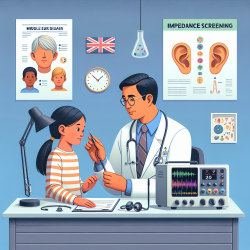As a Special Education Director, you're always on the lookout for innovative ways to enhance the services provided to your students. With the rise of technology, Internet-delivered Cognitive Behavioral Therapy (ICBT) has emerged as a promising alternative to traditional face-to-face therapy. However, despite its proven efficacy, many individuals remain skeptical about its effectiveness. This blog will explore the findings of a research study that investigated the impact of educational videos on perceptions of ICBT, providing you with actionable insights to improve your practice.
According to the research article "Educating patients about Internet-delivered cognitive behaviour therapy: Perceptions among treatment seekers and non-treatment seekers before and after viewing an educational video," educational videos can significantly enhance the positive perceptions of ICBT. The study conducted two experiments to determine whether educational videos could improve expectations of ICBT among treatment seekers and non-treatment seekers.
Key Findings from the Research
- Perceptions of ICBT were significantly higher post-video than pre-video.
- The type of information presented in the videos (client testimonials vs. statistical data) did not impact perceptions of ICBT.
- Both treatment seekers and non-treatment seekers reported similar positive perceptions of ICBT post-video.
- Educational videos are an effective way to increase expectations of ICBT.
These findings suggest that incorporating educational videos into your practice can be a powerful tool to increase the acceptance and positive expectations of ICBT among students, parents, and staff. Here are some practical steps to implement these insights:
Actionable Steps to Implement Educational Videos in Your Practice
- Create or Curate Educational Videos: Develop short, engaging videos that explain the benefits and process of ICBT. Include both client testimonials and statistical data to provide a comprehensive view.
- Share Videos with Stakeholders: Distribute these videos to parents, students, and staff through emails, school websites, and social media platforms. Make sure the videos are easily accessible.
- Host Information Sessions: Organize virtual or in-person sessions where you play these videos and follow up with a Q&A session to address any concerns or questions.
- Incorporate Videos into Training: Use these videos as part of professional development for staff to ensure they are well-informed and can advocate for the benefits of ICBT.
- Collect Feedback: After sharing the videos, gather feedback from viewers to understand their perceptions and make any necessary adjustments to the content.
Encourage Further Research
While the study provides strong evidence for the effectiveness of educational videos in improving perceptions of ICBT, it also highlights the need for further research. Encourage your staff to stay updated with the latest research and consider participating in studies that explore innovative ways to enhance mental health services in schools.
By leveraging the power of educational videos, you can play a pivotal role in breaking down barriers to mental health care and ensuring that your students receive the best possible support. To read the original research paper, please follow this link: Educating patients about Internet-delivered cognitive behaviour therapy: Perceptions among treatment seekers and non-treatment seekers before and after viewing an educational video.










